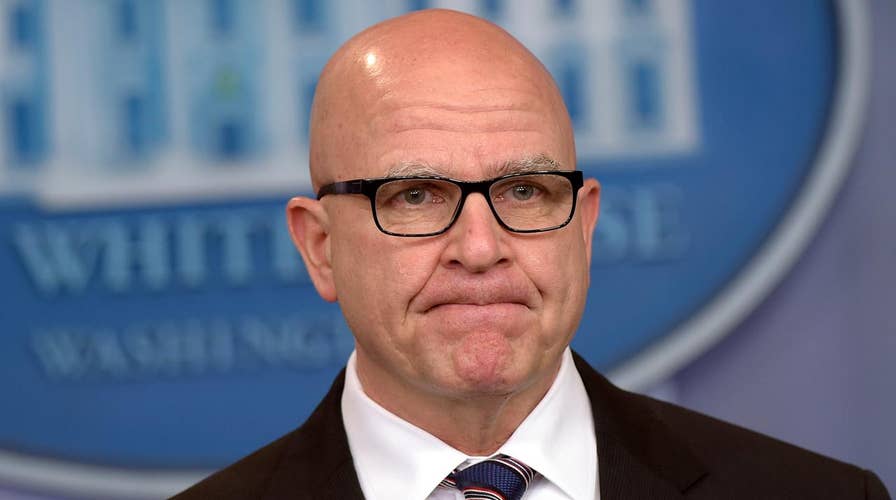McMaster defends Trump's info-sharing with Russian officials
Highlights from National Security Adviser H.R. McMaster's press briefing where he defended President Trump's info-sharing with Russian officials
President Trump and top White House officials defended his conversations with Russian officials Tuesday, while lashing out at anonymous sources who relayed the sensitive information to reporters.
White House press secretary Sean Spicer described unauthorized leaking of sensitive or classified information as "frankly dangerous" and a threat to national security. The press secretary drew a distinction between leaks and Trump's conversation with the Russians, saying the discussion with the Russian officials involved shared threats to the U.S. and Russia.
At an earlier briefing, National Security Adviser H.R. McMaster told reporters that "our national security has been put at risk by those violating confidentiality and those releasing information to the press that could ... make American citizens and others more vulnerable."
The White House's new tack came the day after the Washington Post reported that Trump disclosed to Russian officials the foreign city where an ISIS plot was hatched – a development that could potentially lead the Russians to discover U.S. intelligence sources and methods.
The Post report relied on anonymous current and former U.S. officials in its account of the small May 10 Oval Office meeting Trump had with Russian Foreign Minister Sergei Lavrov and ambassador Sergey Kislyak. An excerpt from an official transcript of the meeting reveals that Trump told them, "I get great intel. I have people brief me on great intel every day."
The president himself even weighed in on Twitter, referencing fired FBI Director James Comey.
Trump also acknowledged that he shared “facts” about the terror threat with Russia, while saying he was in his right to do so.
Trump spoke briefly about the controversy Tuesday in between meetings with visiting Turkish President Recep Tayyip Erdogan. He said he had a “very, very successful meeting” with the Russian foreign minister earlier this month, and the U.S. wants to get as much help as possible in the fight against terrorism.
“We're going to have a lot of great success over the next coming years,” Trump said.
As president, Trump has the ability to disclose classified information largely as he chooses. Yet his decision to discuss an ally's information on the Islamic State with other countries could damage his standing with world leaders and lead some countries to start second-guessing their own intelligence-sharing agreements with the U.S.
The New York Times reported Tuesday afternoon that the intelligence in question was actually provided by Israel.
Ron Dermer, Israeli ambassador to the United States, said in a statement responding to the report: "Israel has full confidence in our intelligence-sharing relationship with the United States and looks forward to deepening that relationship in the years ahead under President Trump."
On Capitol Hill, Democrats and Republicans alike expressed concern. Sen. John McCain, R-Ariz., called the reports "deeply disturbing" and said they could affect the willingness of U.S. allies and partners to share intelligence with the U.S.
Senate Majority Leader Mitch McConnell, R-Ky., called the intelligence uproar a distraction from GOP priorities such as tax reform and replacing the health care law.
"I think we could do with a little less drama from the White House on a lot of things so that we can focus on our agenda," he told Bloomberg Business.
Minority Leader Chuck Schumer, D-N.Y., called for Congress to have immediate access to a transcript of Trump's meeting with the Russians, saying that if Trump refuses, Americans will doubt that their president is capable of safeguarding critical secrets.
CIA Director Mike Pompeo was to brief members of the House intelligence committee later Tuesday.
The Associated Press contributed to this report.





